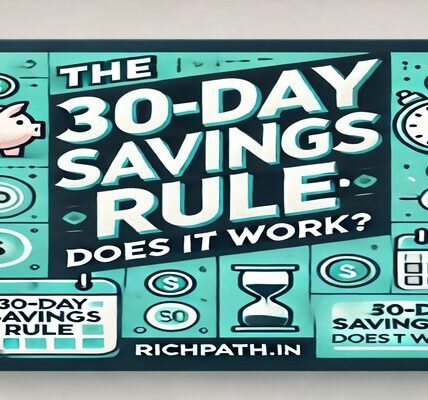A credit score of 800+ is often seen as the golden standard of financial health. Achieving this score in India is not only possible but also highly rewarding. It opens the doors to favorable loan terms, higher credit limits, and financial stability. If you’ve ever wondered how to get your credit score above 800, this in-depth guide will walk you through the strategies step by step.
What Is a your Credit Score and Why Does It Matter?
Your credit score is a numerical representation of your creditworthiness. In India, this score typically ranges from 300 to 900 and is maintained by credit bureaus such as CIBIL, Experian, and Equifax. A score above 800 is considered excellent and signifies responsible credit behavior.
Having a high credit score means:
- Better Loan Offers: Lower interest rates and favorable terms.
- Higher Credit Limits: Access to more funds when needed.
- Financial Trustworthiness: Easier approvals for loans, credit cards, and even rental agreements.
How your Credit Scores is Calculated in India
Understanding how your score is calculated can help you improve it effectively. Factors influencing your credit score include:
- Payment History (35%): Timely repayment of EMIs and credit card bills.
- Credit Utilization Ratio (30%): The percentage of credit used against your total limit.
- Length of Credit History (15%): Longer credit histories are better.
- Credit Mix (10%): A healthy balance of secured (home loans) and unsecured (credit cards) loans.
- New Credit Inquiries (10%): Too many inquiries can lower your score.
Steps to Achieve your Credit Score of 800+
1. Pay All Bills on Time
Your payment history has the highest impact on your score.
- Set up auto-debit mandates for loan EMIs and credit card bills.
- Never miss due dates, even for utility bills, as some lenders consider them.
Example: If your monthly credit card bill is ₹20,000, ensure you pay the full amount by the due date to avoid interest and a negative impact on your score.
2. Keep Your Credit Utilization Low
Aim to use less than 30% of your total credit limit.
- If your credit card has a ₹1,00,000 limit, keep monthly expenses below ₹30,000.
- Consider requesting a higher credit limit if your expenses are high, but avoid overspending.
3. Maintain a Healthy Credit score Mix
Lenders prefer a balanced credit portfolio.
- Use a combination of secured loans like home or car loans and unsecured credit like personal loans or credit cards.
- Avoid relying too heavily on any one type of credit.
Example: Taking a ₹10 lakh home loan and responsibly using a credit card for day-to-day expenses shows a healthy mix.
4. Monitor Your Credit score Reports Regularly
Errors in your credit report can harm your score.
- Check your free credit report annually on platforms like CIBIL or Experian.
- Dispute inaccuracies such as incorrect loan closures or unrecognized inquiries.
5. Avoid Multiple Loan Applications
Each loan application triggers a hard inquiry, which can lower your score.
- Research and compare loan offers before applying.
- Use pre-approved loan offers that don’t impact your credit score.
Pro Tip: Limit credit card applications to no more than twice a year.
6. Don’t Close Old Credit Accounts
Older accounts contribute to a longer credit history, which is favorable.
- Keep old credit cards open, even if you don’t use them often.
- Pay any annual fees to maintain a positive impact on your credit history.
Example: A credit card you’ve had for 7 years adds more value to your score than a new one.
7. Handle Joint Accounts Carefully
Joint loans or credit cards can impact your score if the co-borrower defaults.
- Ensure all parties are financially stable before sharing credit responsibilities.
- Regularly monitor the repayment status of joint accounts.
Common Mistakes to Avoid
- Late Payments: Even one missed payment can significantly lower your score.
- Exceeding Credit Limits: High credit utilization reflects poor financial management.
- Frequent Loan Switching: Avoid refinancing loans frequently, as it creates multiple inquiries.
- Ignoring Credit Reports: Errors can go unnoticed without regular monitoring.
Real-Life Example: How Ramesh Got an 820 Credit Score
Ramesh, a 32-year-old IT professional from Bangalore, struggled with a credit score of 650 due to missed credit card payments and high utilization.
Here’s what he did:
- Set up reminders for payments and cleared all dues on time.
- Requested a credit limit increase, reducing his utilization ratio to 20%.
- Took a small personal loan and repaid it within a year to build a good credit mix.
Within two years, his score jumped to 820, giving him access to a home loan at a 7% interest rate.
FAQs
How Long Does It Take to Reach an 800+ Credit Score?
It depends on your starting point. If your score is already 750+, it may take 6-12 months of consistent effort. For lower scores, expect it to take 2-3 years.
Can I Improve My Credit Score Without Taking a Loan?
Yes, by paying credit card bills on time, maintaining a low utilization ratio, and monitoring your report for errors.
Does Checking My Credit Score Lower It?
No, checking your own score is a soft inquiry and doesn’t affect your credit rating.
Final Thoughts
Getting your credit score to 800+ requires discipline, patience, and strategic financial planning. By following these steps and avoiding common pitfalls, you can achieve this milestone and enjoy the benefits of excellent credit health.
For more expert tips on managing your finances, building wealth, and improving your credit score, visit Richpath.in.
Like this article? Check out our detailed guide on How to Choose the Best Mutual Funds in India. For any other requirements, feel free to comment below or reach out to us!





3 COMMENTS